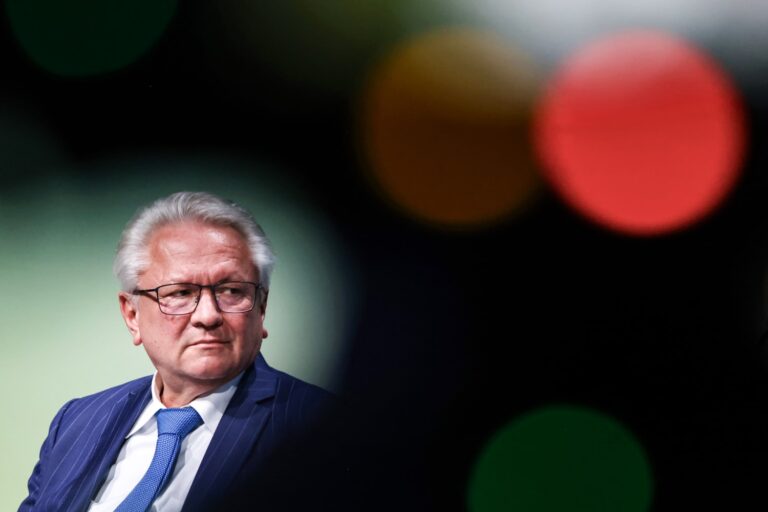Russia’s plot to assassinate the CEO of a major German arms manufacturer that supplies artillery shells and armored vehicles to Ukraine was uncovered and thwarted by U.S. and German authorities, U.S. officials and sources familiar with the matter said.
The plot targeted Armin Papelger, CEO of Rheinmetall, Europe’s largest munitions manufacturer. The company makes 155mm artillery shells for Ukraine and plans to open factories in the country to produce ammunition and armored vehicles, including Lynx infantry fighting vehicles. U.S. intelligence agencies discovered the plot to go after Papelger earlier this year and alerted the German government, according to the sources.
The assassination plot was first reported by CNN.
Papelger is one of the European defense industry leaders targeted, but the plot against him appears to go further, the people said.
The revelations follow recent warnings by the NATO secretary-general, European governments and U.S. officials about Moscow’s growing efforts to disrupt arms supplies to Ukraine as it tries to defend itself against a Russian military invasion.
The White House National Security Council did not comment directly on the specific matter of Rheinmetall, but council spokesman Adrienne Watson said the Biden administration is concerned about the growing threat of Russian sabotage.
“While I cannot comment on this specific report, the escalation of Russian subversive activities is something we take very seriously and have focused our efforts on over the past few months,” Watson said. “The United States is consulting with our NATO allies about this issue and is actively working together to expose and stop these activities. We have also been clear that Russian actions will not deter our allies from continuing to support Ukraine.”
The Office of the Director of National Intelligence, the CIA and the German Embassy in Washington all declined to comment.
A spokesman for the House Intelligence Committee’s Democratic minority declined to comment on the plot allegations, but said, “As President Putin continues to fail to achieve his maximalist policy in Ukraine, Russia is increasingly focusing its efforts on illegal, aggressive and malign activities overseas, including in NATO countries. The Intelligence Committee is closely monitoring these threats, and they only strengthen our resolve to support Ukraine.”
The Russian Embassy in Washington did not immediately respond to a request for comment.
NATO Secretary-General Jens Stoltenberg said last month that allies planned to tighten restrictions on Russian spies and bolster security of key infrastructure to counter Russia’s use of sabotage, cyberattacks and disinformation to undermine Western support for Ukraine following Russia’s full-scale invasion of Ukraine in February 2022.
“We have seen multiple cases of vandalism, attempted arson, cyber attacks and disinformation,” Stoltenberg told reporters.
NBC News previously reported that President Vladimir Putin’s increasingly aggressive efforts to undermine Western support for Ukraine have seen Russia wage sabotage campaigns across Europe, seeking to damage railways, military bases and other facilities used to supply weapons to Kiev.
Attempted sabotage have included Russian-backed arson of a Ukraine-related warehouse in the UK, plots to blow up or set fire to military bases in Germany, attempts to hack and disrupt European railway signalling networks, and jamming civil aviation GPS systems.
A report published in February by the Royal Institute for Integrated Security Studies, a London-based security think tank, warned that Russia’s GRU intelligence agency was building a network of covert agents in Europe to conduct espionage and sabotage.
Rheinmetall’s Papelger announced last month that the company plans to enable production of the Lynx infantry fighting vehicle in Ukraine “in the near future.” Rheinmetall also signed a memorandum of understanding with Ukraine in February to set up a joint artillery shell production plant, which the company said will produce “six-figure quantities” of 155mm-caliber shells in the near future.
Rheinmetall’s cooperation with Ukraine is part of a broader effort by European governments to help Kyiv build up its own defense industry and reduce its reliance on Western aid.


